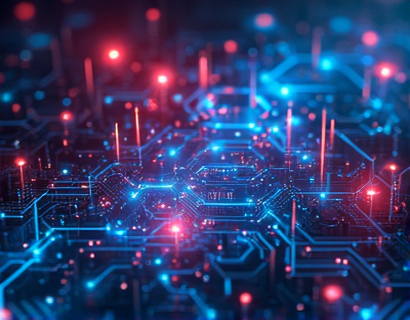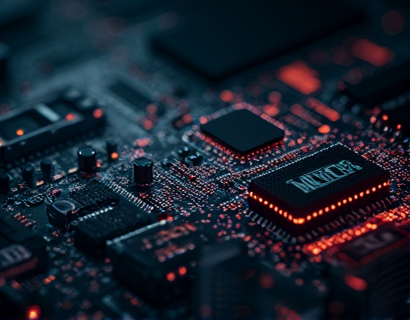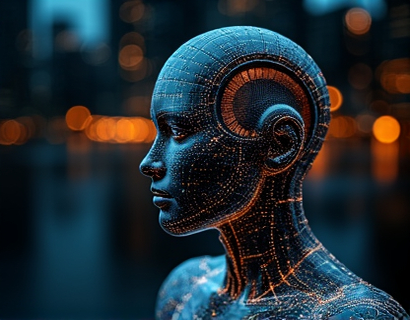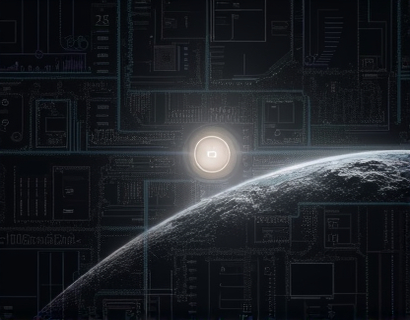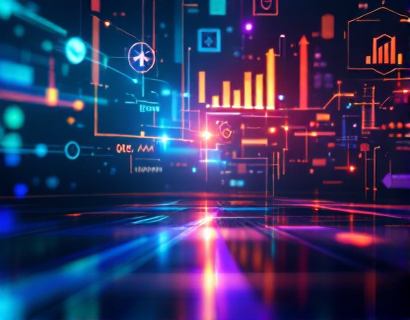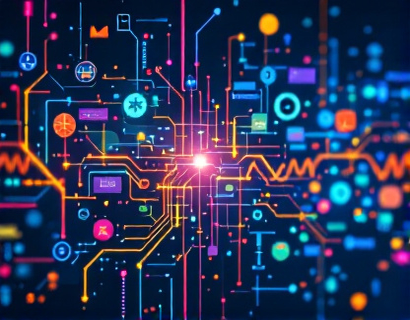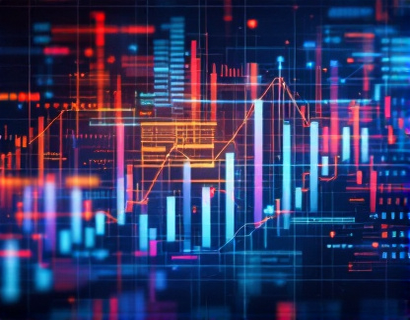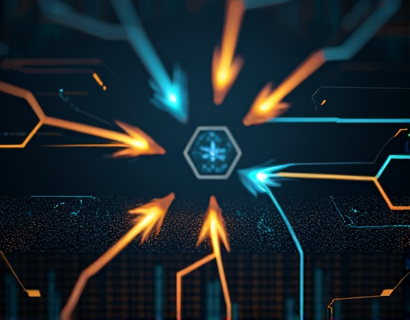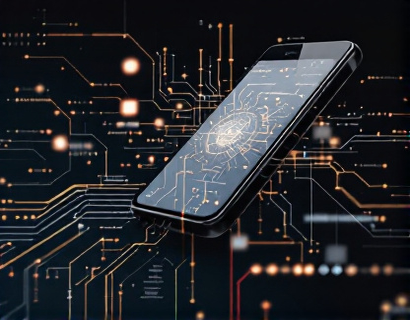Decentralized Productivity: Unlocking Next-Gen Potential with AI and Crypto in Ucosystem Applications
The digital landscape is undergoing a profound transformation, driven by the convergence of artificial intelligence (AI) and cryptocurrency. This synergy is giving rise to decentralized productivity tools and applications that promise to revolutionize how we work, collaborate, and manage our digital lives. The concept of a Ucosystem, where decentralized technologies and AI intersect to enhance productivity, is gaining traction among tech enthusiasts and professionals alike. This article delves into the intricacies of this emerging field, exploring how AI and crypto are merging to unlock unprecedented efficiency and transform user experiences.
The foundation of this revolution lies in the decentralized nature of blockchain technology. Traditional productivity tools are often centralized, meaning they rely on servers and databases controlled by a single entity. This centralization can lead to bottlenecks, security vulnerabilities, and limited scalability. In contrast, decentralized applications (dApps) leverage blockchain to distribute data and processing across a network of nodes, eliminating single points of failure and enhancing security. This decentralized approach not only improves reliability but also empowers users by giving them greater control over their data and interactions.
AI, on the other hand, brings intelligent automation and advanced analytics to the table. By integrating AI into decentralized applications, we can create systems that not only store and transmit data securely but also process and analyze it in real-time, providing insights and automating tasks with minimal human intervention. This combination of AI and decentralization is what we refer to as the Ucosystem, a space where the boundaries of traditional productivity tools are pushed to new limits.
Enhanced Security and Trust
One of the most significant advantages of decentralized productivity tools is the enhanced security and trust they offer. In a decentralized system, data is not stored in a single location but is instead distributed across multiple nodes. This distribution makes it extremely difficult for malicious actors to compromise the system, as they would need to simultaneously attack a majority of the nodes. Blockchain's cryptographic algorithms further ensure that data remains tamper-proof and transparent, building trust among users.
For instance, in a decentralized document collaboration platform, each version of a document is stored across the network, and any changes are recorded on the blockchain. This means that users can verify the integrity of the document and track all modifications made by different contributors. Such transparency not only enhances trust but also reduces the risk of fraud and data manipulation.
Improved Efficiency and Automation
AI-driven decentralized applications can automate routine tasks and optimize workflows, significantly improving efficiency. Machine learning algorithms can analyze patterns in data, predict outcomes, and make decisions with minimal human input. In a decentralized environment, these algorithms can operate independently on multiple nodes, processing large volumes of data in parallel and providing real-time insights.
Consider a decentralized project management tool that uses AI to automate task assignments based on team members' availability and skill sets. The system can continuously learn from user interactions and preferences, refining its recommendations over time. This not only streamlines the project management process but also ensures that tasks are assigned optimally, reducing delays and increasing productivity.
Decentralized Identity and Access Management
Identity verification and access management are critical components of any productivity ecosystem. Decentralized identity solutions, powered by blockchain and AI, offer a secure and user-controlled approach to managing digital identities. Users can create and manage their identities on the blockchain, granting or revoking access to various applications and services as needed.
AI can enhance this process by analyzing user behavior and patterns to detect anomalies and potential security threats. For example, an AI-powered decentralized authentication system can monitor login attempts and flag suspicious activities, sending alerts to users and administrators. This proactive approach to security helps prevent unauthorized access and data breaches, ensuring that sensitive information remains protected.
Tokenization and Incentivization
Tokenization plays a crucial role in the Ucosystem by providing a mechanism for incentivizing participation and rewarding contributions. In a decentralized productivity platform, tokens can be used to reward users for completing tasks, contributing to the network, or providing valuable insights. These tokens can then be used to access premium features, purchase services, or even traded on cryptocurrency exchanges.
AI can optimize the tokenization process by analyzing user engagement and performance data to determine the most effective incentive structures. For instance, an AI algorithm can adjust token rewards based on user activity levels and the value they bring to the network, ensuring that incentives remain motivating and fair. This dynamic approach to incentivization can significantly boost user engagement and foster a more collaborative and productive community.
Interoperability and Integration
One of the challenges in the decentralized space is ensuring interoperability between different platforms and applications. However, advancements in blockchain technology and AI are making it possible to create seamless integrations across various Ucosystem tools. Cross-chain protocols and decentralized middleware solutions enable different blockchain networks to communicate and share data, allowing for a more cohesive and integrated user experience.
AI can further enhance interoperability by acting as a smart mediator, translating data formats and protocols in real-time. This ensures that applications from different developers can work together seamlessly, providing users with a unified and efficient productivity environment. For example, an AI-powered integration layer can connect a decentralized calendar app with a task management tool, automatically syncing events and tasks across platforms.
User-Centric Design and Accessibility
The success of decentralized productivity tools depends not only on their technical capabilities but also on their user-friendliness and accessibility. Designing Ucosystem applications with a user-centric approach ensures that they are intuitive, accessible, and inclusive. AI can play a vital role in this process by analyzing user feedback and behavior to identify areas for improvement and personalization.
For instance, an AI-driven interface can adapt to individual user preferences, adjusting the layout, language, and functionality based on usage patterns. This personalized experience not only enhances usability but also increases user satisfaction and retention. Additionally, AI can help make these tools more accessible to users with disabilities by providing features like voice commands, text-to-speech, and customizable interfaces.
Future Prospects and Challenges
The potential of the Ucosystem is vast, but realizing this potential comes with its own set of challenges. One of the primary hurdles is scalability. As the number of users and transactions grows, decentralized networks must be able to handle increased load without compromising performance. Solutions like sharding, layer 2 protocols, and more efficient consensus mechanisms are being developed to address these scalability issues.
Another challenge is regulatory uncertainty. The intersection of cryptocurrency and AI in productivity tools raises questions about compliance, data privacy, and legal frameworks. Stakeholders in the Ucosystem must work closely with regulators to establish clear guidelines that foster innovation while protecting users and maintaining ethical standards.
Despite these challenges, the future of decentralized productivity looks promising. As more developers and organizations recognize the benefits of AI and blockchain, we can expect to see a surge in innovative applications and services. The Ucosystem has the potential to redefine productivity in the digital age, offering unparalleled efficiency, security, and user empowerment.
In conclusion, the convergence of AI and cryptocurrency in decentralized productivity applications is transforming the way we work and interact with technology. By leveraging the strengths of both domains, the Ucosystem is paving the way for a more secure, efficient, and user-centric digital future. As this field continues to evolve, it will be exciting to witness the new possibilities that emerge and the impact they have on our daily lives.




